With a Grammy winner and all-star cast, this Wilmington production tackles a 'Salesman'
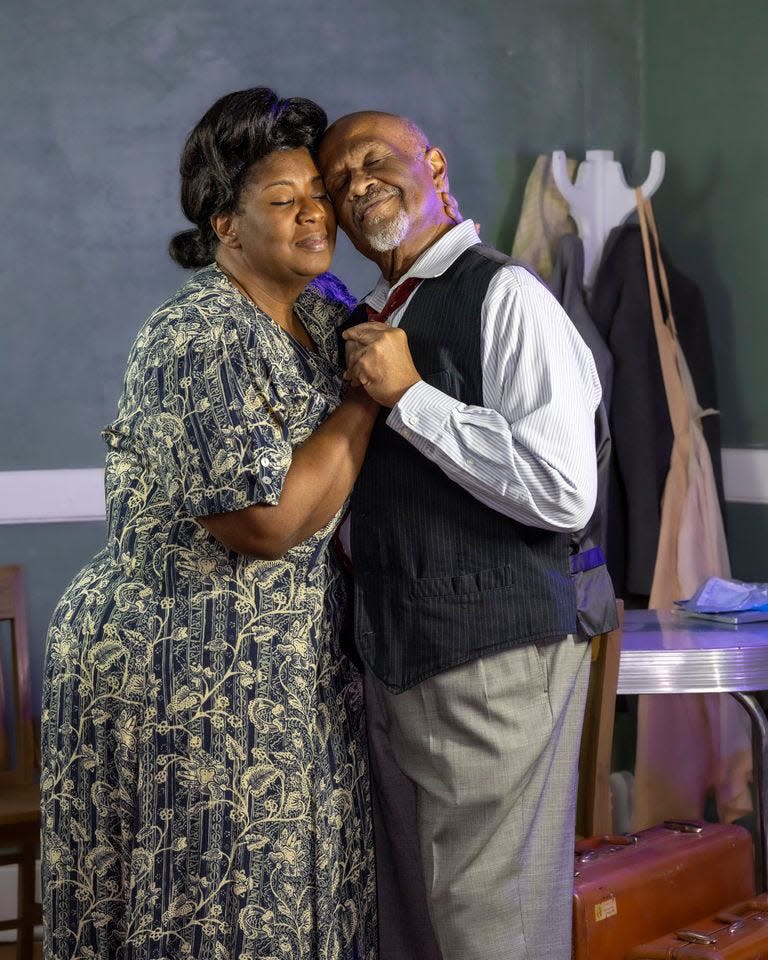
- Oops!Something went wrong.Please try again later.
Few plays are as well-known to theater audiences as Arthur Miller's 1949 masterpiece "Death of a Salesman." You know it even if you've never seen it, but if you've seen it, you know why it endures.
A dark, deeply felt indictment of the American Dream, the play cuts to the core of seemingly intractable problems, from the ingrained inequities of capitalism to the ways in which we sometimes destroy the things, like personal and family relationships, we hold most dear.
This week and next at historic Thalian Hall in downtown Wilmington, Opera House Theatre Co. presents a star-studded rendition of "Death of Salesman" with a mostly Black cast befitting its stellar reputation.
Along with multi-time Wilmington Theater Awards winner Fracaswell Hyman in the title role of Willy Loman, Tony-nominated, Grammy-winning actress NaTasha Yvette Williams (multiple Broadway credits include "Some Like It Hot") will play Willy's long-suffering wife, Linda Loman.
Hyman is also an accomplished writer of children's TV shows and YA novels. "Lyla in the Loop," of which he is the creator and head writer, premiered earlier this month on PBS Kids.
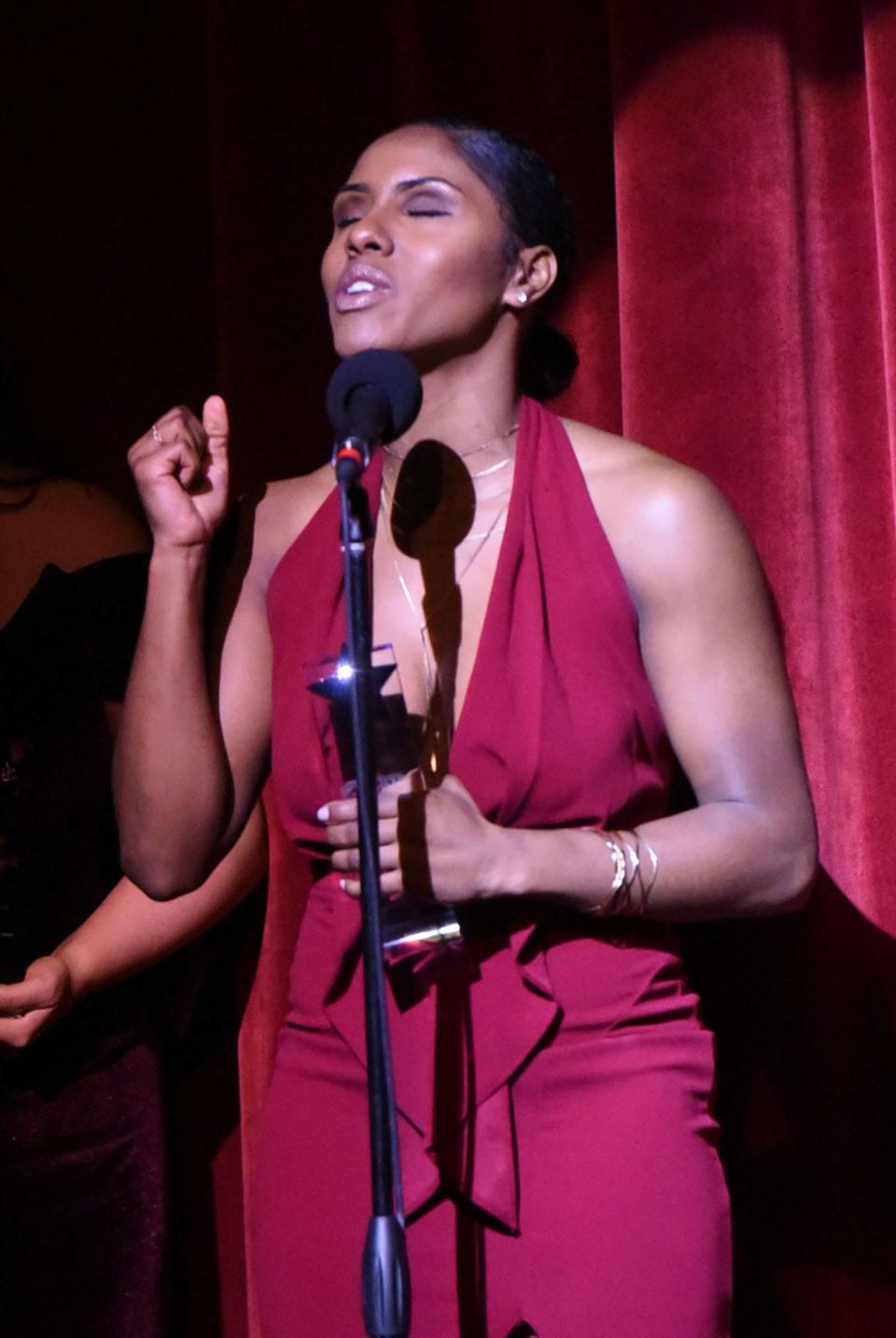
Wilmington Theater Awards winner and Broadway performer Stoney B. Mootoo ("The Book of Mormon") comes back to Wilmington to direct the show for Opera House, which is also bringing in actors for other roles: Dontonio Demarco and Jadin Alexander as Willy and Linda's sons, Biff and Happy, and Raleigh-based actress (and Opera House regular) Michelle Braxton as Willy's white, never-named "other woman."
I sat down with Mootoo and her cast at Opera House headquarters on Carolina Beach Road for a conversation about the play. It has been condensed and edited for clarity.
StarNews: Cas, you've done some pretty big roles, including Troy in "Fences" and Hoke in "Driving Miss Daisy," but none as iconic as Willy Loman. Is that daunting for you, and how have you approached it?
Frascaswell Hyman: You do a lot of research. It is a real challenging role. Like most of us around our age, I had to had to read "Death of a Salesman" in high school. But seeing it onstage, vibrant with actors, is such a different experience than reading it in a class. When I started reading it again, I was really surprised by what an explosive and modern play it is, especially to have been written in 1949.
Doing it with a mostly Black cast, are there themes that come out that maybe wouldn't ordinarily? Are there things that hit different?
Dontonio Demarco: Things definitely things hit differently, but I think the beauty in the writing is that it didn't need to be altered because it's an all-Black cast. We didn't have to take this out, write this in or anything like that. There's a moment Willy has with the (other) woman where he says, "I think it's illegal." They may be talking about something different with a white couple, but it plays into the race element of that time.
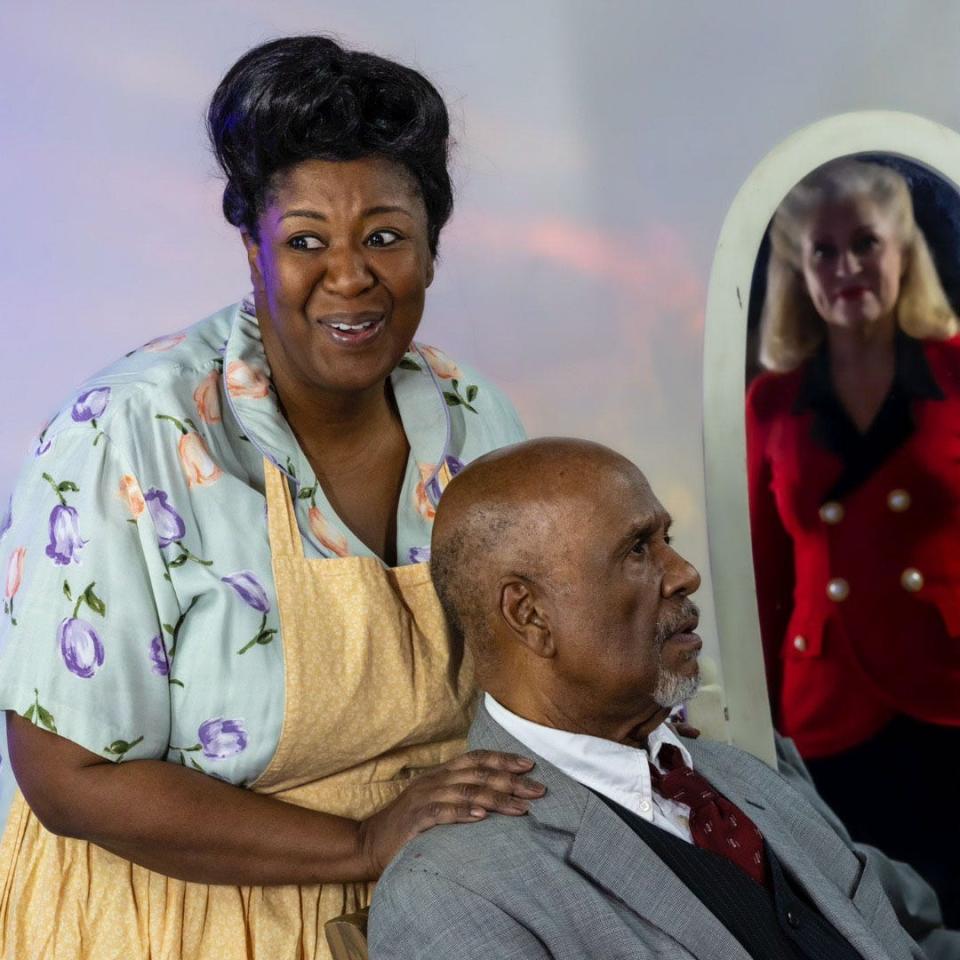
NaTasha, you were just onstage winning a Grammy for Best Musical Theater Album for "Some Like It Hot." What brings you to Wilmington to do this show?
NaTasha Yvette Williams: I'm from Fayetteville, North Carolina, so this is home. I have a connection to a lot of people here. It was a no-brainer, really, for me to be able to take on Linda Loman. I've never played her before, so it's nice to be able to come home and be in an environment that I'm familiar with while doing something totally new.
Tell me a little about your take on Linda.
Williams: I just have to keep in mind what year it is. A lot of things I would have handled differently, Linda doesn't handle them that way just because of the time period that she's in. I hold on to the fact that love is love. And because she's in love with her husband, and in love with her sons even though she's not necessarily happy with some of their behaviors, it's about her quest to hold on to that love and preserve her family. So I can certainly identify with that.
People had a different way of looking at the world back then. Are there other things in the play that were maybe handled a certain way in the '40s that are different now?
Hyman: Mental illness. There's a bigger light on mental health now, but I think it's very recent. We talked about it when he had our first read: In today's terms, I think that Willy Loman had dementia. And (the cast) talked about it. Everybody in this room had been touched by dementia in some capacity.
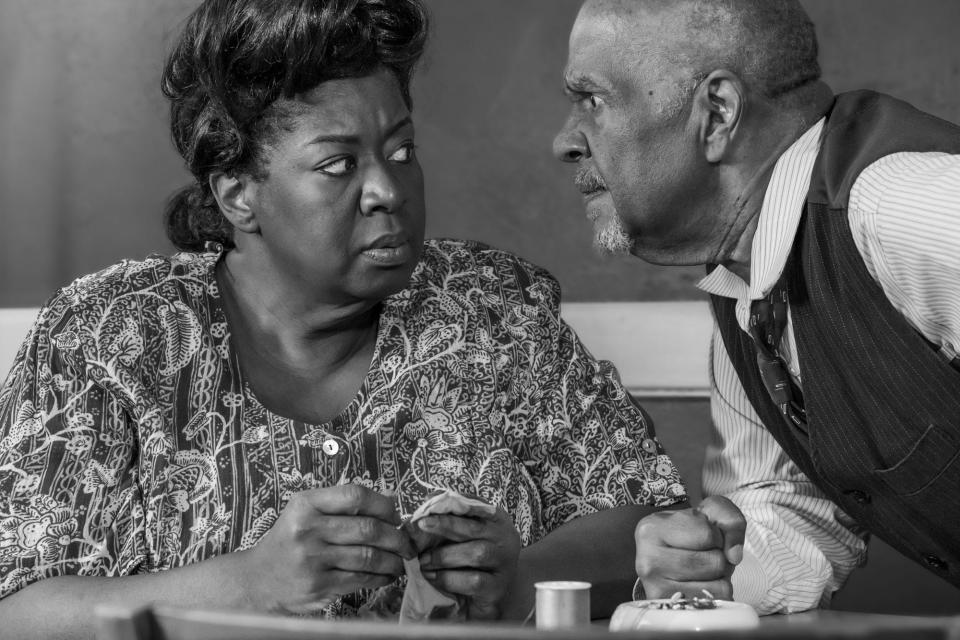
Stoney, you're in New York now, but let me ask you the same question about what brings you back to Wilmington to direct this show?
Mootoo: I just thought telling the story from a Black perspective would be amazing. There's so many different layers, but then adding our Black experience in America on top of what they're already enduring as a family would just add a depth to it. It's more unspoken in the way that we've been approaching it. We don't have to (emphasize it) beause we understand it innately as a people, and people of other races can empathize with what we have had to endure as a people in a society that just wasn't built for us.
And then, I'm always gonna come back to beautiful Wilmington. It's calm. It's peaceful. Wilmington is home. (Former Opera House artistic director) Justin Smith was one of my artistic mentors from the beginning. He saw qualities in me and just said, "You can do it," and was one of the first people that really made me feel like I could do this professionally.
Jadin, what's your take on Happy?
Jadin Alexander: Happy is very outgoing. He's very playful. He's very braggadocious. He tries to hold this masculine frame, but I do think there are certain moments throughout the play, you kind of see it crack slightly: with how he looks at his father, the aspirations he had with his brother, and the disappointment he may sometimes feel from his mother. He's trying to achieve a certain level of glory for his family name, to achieve a certain level of wealth. We all in some way, shape or form, try to have a certain level of glory that we try to reach.
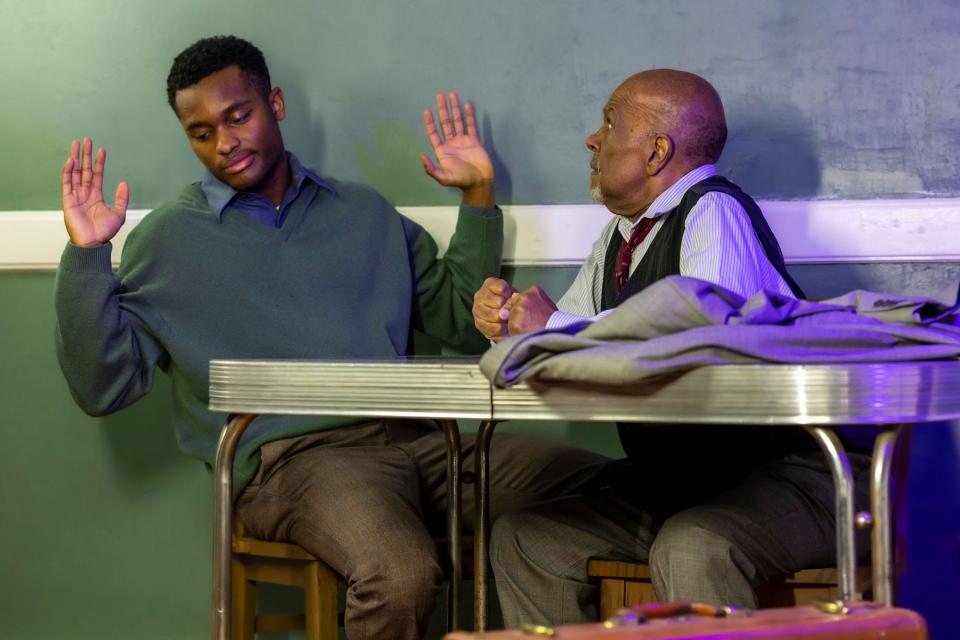
One thing that I think keeps this play going, keeps it relevant, is that so many people have these difficult family relationships. Is there stuff from your personal lives that you're bringing to these characters?
Demarco: I had a really great relationship with my father, but I do try to pull from the moments where I looked at my dad as so much bigger than life. There is a moment in your life when you become an adult and you start to see the mortality of your parents. I remember seeing my mom just go through a hard time I'm like, "Oh, my mom's just a little girl in this moment. This is all new for her, too."
As Natasha said, '49 going into the '50s in America was a time of facade. I think Biff is over the facade. He's gotten to a point at 34 where he's just like, "OK, I can't do this." And to that kind of self-awareness is there's a sadness in it sometimes where you're just like, I always wanted to do this but I'm not gonna make it, so I need to settle and find my happiness. And that's almost a bargain or a deal you make with yourself to keep yourself going every day. I've tried to explore that within my character but it is it is very sad and tough.
Hyman: Willy is so much facade in trying to make everybody think he has a certain level and a certain stature in the world. And you look at us today, you look online, people are always putting their vacation pictures, fabulous dinners and all that stuff. And then some of us look at it and go, "Dang, they got a good life." But you only put the frosting out there. And so, I think there is a lesson in looking at this show through today's (lens): How much are we being real about what our lives are? And how much of it is artifice? Willy always talks about being well liked. Well, if Willy was on Instagram or Facebook and if he didn't get, you know, 100 likes a day he would probably want to jump off a bridge. So, there's a lot of meat in it for today's audiences to watch and reflect on.
Want to go?
What: "Death of a Salesman," by Arthur Miller. Presented by Opera House Theatre Co.
When: 7:30 p.m. Feb. 22-24 and 29-March 2, 2 p.m. Feb. 25 and March 3.
Where: Thalian Hall, 310 Chestnut St., Wilmington
Info: Tickets are $40-$45.
Details: 910-632-2285 or ThalianHall.org.
This article originally appeared on Wilmington StarNews: 'Death of a Salesman' at Thalian Hall in downtown Wilmington

